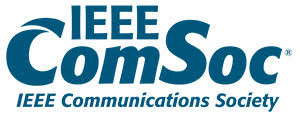CSIM Online Seminar, Prof. Walid Saad, on 31 March 2021, at 9:30 AM EST
Dear CSIM Members,
It is my pleasure to announce that Prof. Walid Saad will be our next speaker at CSIM Online Seminars. Please mark your calendar, and we look forward to seeing you on 31 March 2021 at 9:30 AM EST in this interesting seminar.
Best regards,
Nizar Zorba,
CSIM chair
Speaker: Walid Saad, IEEE Fellow
Professor at Bradley Department of Electrical and Computer Engineering, Virginia Tech, USA
Seminar Title: Wireless Extended Reality over 6G Terahertz Networks: A Tale of Two Rs.
Registration: Please register in the link https://forms.gle/WGwKT3d9g8AXSoCX9 Connection Details will be provided prior to the seminar.
Content (Video recording): Please find the seminar recording in this link https://www.youtube.com/watch?v=gcAn_R5NDwU
Brief Abstract: Unleashing the true potential of extended reality (XR) applications, encompassing virtual reality (VR), augmented reality (AR), and mixed reality, requires providing them with seamless and pervasive connectivity over wireless cellular networks such as 5G and 6G. However, deploying wireless XR applications will impose new visual and haptic requirements that are directly linked to the quality-of-experience of XR users. These requirements can only be met by wireless 6G connectivity that offers high-rate and high-reliability low latency communications (HRLLC), unlike the low rates usually considered in vanilla 5G ultra-reliable low latency communication scenarios. Therefore, in this talk, after a brief overview on our vision on the role of XR in 6G systems, we will explore the potential of using wireless 6G networks operating at the terahertz (THz) frequency bands for meeting HRLLC requirements of VR applications. We first quantify the risk for an unreliable VR performance through a novel and rigorous characterization of the tail of the end-to-end (E2E) delay. Then, we perform a thorough analysis of the tail-value-at-risk to concretely characterize the behavior of extreme wireless events crucial to the real-time VR experience. We use this analysis to derive system reliability for scenarios with guaranteed line-of-sight (LoS) as a function of THz network parameters. We then present simulation results that show how abundant bandwidth and low molecular absorption are necessary to improve the VR application reliability, although their effect remains secondary compared to the availability of LoS. Subsequently, we summarize some of our key results in two related areas: a) the reliability of AR over THz systems and b) the role of machine learning can play in enabling wireless VR applications. We conclude our talk with an overview on other key open problems in the area of cellular-connected XR.
Short biography: Prof. Walid Saad (S’07, M’10, SM’15, F’19) received his Ph.D degree from the University of Oslo in 2010. He is currently a Professor at the Department of Electrical and Computer Engineering at Virginia Tech, where he leads the Network sciEnce, Wireless, and Security (NEWS) laboratory. His research interests include wireless networks, machine learning, game theory, security, unmanned aerial vehicles, cyber-physical systems, and network science. Dr. Saad is a Fellow of the IEEE and an IEEE Distinguished Lecturer. He is also the recipient of the NSF CAREER award in 2013, the AFOSR summer faculty fellowship in 2014, and the Young Investigator Award from the Office of Naval Research (ONR) in 2015. He was the author/co-author of ten conference best paper awards at WiOpt in 2009, ICIMP in 2010, IEEE WCNC in 2012, IEEE PIMRC in 2015, IEEE SmartGridComm in 2015, EuCNC in 2017, IEEE GLOBECOM in 2018, IFIP NTMS in 2019, IEEE ICC in 2020, and IEEE GLOBECOM in 2020. He is the recipient of the 2015 Fred W. Ellersick Prize from the IEEE Communications Society, of the 2017 IEEE ComSoc Best Young Professional in Academia award, of the 2018 IEEE ComSoc Radio Communications Committee Early Achievement Award, and of the 2019 IEEE ComSoc Communication Theory Technical Committee. He was also a co-author of the 2019 IEEE Communications Society Young Author Best Paper. Dr. Saad received the Dean’s award for Research Excellence from Virginia Tech in 2019. He currently serves as an editor for the IEEE Transactions on Mobile Computing and the IEEE Transactions on Cognitive Communications and Networking. He is an Editor-at-Large for the IEEE Transactions on Communications.

